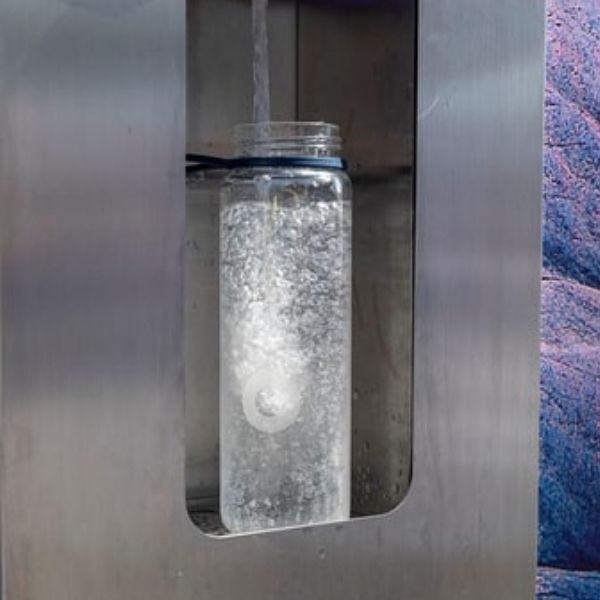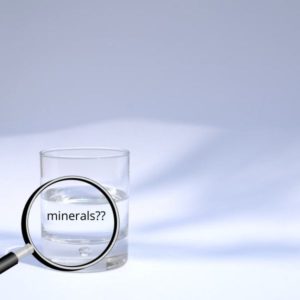5 Effective Ways of Removing Minerals from Water
You can find a lot of ways to remove minerals from hard water. However, all of those methods are not useful. There are a lot of home remedies that are not as functional as they are claimed to be. So, opt for those methods of mineral removal that are effective, such as reverse osmosis, water softeners, distillation, etc.
Distillation
Distillation has become a popular method of removing minerals from drinking water. Distillation can remove the dissolved minerals and make the distilled water is up to 99% pure. Though distillation is beneficial, it also leaches healthy minerals from distilled water.
Along with minerals, distillation also removes other harmful contaminants as the drinking water evaporates.
Reverse Osmosis
Reverse osmosis is one of the best techniques to remove minerals from drinking water. Different minerals are found in hard water. However, the size of most of the mineral molecules is greater than water molecules. This size difference helps in leaching the minerals out of the hard water through a reverse osmosis membrane.
Hydrostatic pressure is applied to carry out the process of reverse osmosis. And as a result, 90 to 99 percent of inorganic contaminants are removed from the hard water.

Water Softener
Another method to remove minerals from hard water is using water softeners, such as ion exchange resins. These are filtration systems that soften water. These systems use special techniques, such as ion exchange for water softening.
Water with a lot of minerals is called hard water. And when the mineral concentration is decreased it becomes soft water.
Though water softener is an effective hard water treatment solution, it makes the water less consumable. Also, the use of water softeners makes the recycling of water difficult.
Apart from a water softener, you can also use a salted and salt-free water conditioner for this purpose. They also serve the same purpose.
Chelating Agents
Other than distillation and water softeners, chelating agents are found to be impressively useful in the purification of hard water. These are molecules that bind to other mineral molecules. When they bind with harmful minerals present in tap water, water-soluble compounds are formed.
Though they are useful as a water softener, they show adverse environmental effects.
Deionization
Similar to reverse osmosis, deionization is one of the chemical methods to remove minerals from tap water. Another name for deionized water is demineralized water, which means the water is free from any mineral deposits.
Most minerals present in hard water are in their ionic form, as they are dissolved. And the process of deionization includes the removal of these ions by ion exchange. It results in 90 to 99 percent pure water.
What are Minerals?
Minerals are naturally occurring substances made by a combination of chemical compounds. They have a specific chemical composition and crystalline shape. Minerals are also present in water. Inorganic minerals are present in almost all types of water. However, some other minerals have higher concentrations in spring waters. According to the Water Quality Association, if your water has more than 1 (GPG) grains per gallon or 17 ppm, then it is hard water.
Hard water contains two types of minerals, inorganic and organic minerals. Inorganic minerals, such as calcium and magnesium, can contaminate water.
Organic minerals are mostly obtained from plant food. Plants take up inorganic minerals from the soil. Plant mineral is then converted into organic mineral, which travels to the human body through food.
The hard water containing these minerals is not only harmful to health but also results in the formation of soap scum on different surfaces. It also destroys various appliances like washing machines and water heaters, etc.
Here is a side tip, if you want to remove hard water stain from your washing machine, then using acid water or any acidic medium like white vinegar or distilled vinegar, or lemon might help.
Source of Mineral Contamination
Water usually comes from underground. And when it moves within rocks, it encounters a lot of minerals. It is where the water is contaminated with different nutrients and minerals. Though some of them are beneficial, higher concentrations of these minerals can be harmful to humans.
As the water flow strikes different rocks and fractures, more and more minerals are added to the water until it becomes saturated. So, deeper waters are highly mineralized.
Another source of mineral contamination is industrial waste, which is added to water reservoirs. It has a high concentration of minerals and contaminates drinking water.
The Symptoms and Dangers of Mineral Contamination
Mineral buildup can result in serious health issues. So, it is necessary to purify the water before using it for drinking or household purposes. Hard water can build mineral deposits, which negatively impact human health.
Calcium is one of the most common minerals found in drinking water. Excessive amounts of calcium carbonate can cause hypercalcemia. It causes vomiting, nausea, constipation, disturbed stomach, bone pain, and muscle weakness.
High amounts of magnesium can affect your heart. It affects your heartbeat, blood pressure and can cause a coma. Also, it can cause disturbance of healthy nerve transmission, confusion, lethargy, etc.
Potassium chloride is also harmful. Excessive amounts of potassium chloride in drinking water can result in diarrhea, chest or abdominal pain, palpitations, muscle weakness, disturbance of body fluids, nausea, and vomiting.
Though sodium has numerous benefits, high concentrations of sodium in drinking water can result in adverse effects on the human body. Minor intake causes convulsions, muscle twitching, and nausea. On the other hand, high intake can result in heart failure.
Does Water Filter Remove Minerals from Drinking Water?
Not all the minerals present in water are good for the human body. So, you need to regulate the number of minerals in the water. For this purpose, you can use a water purifier. There are different types of water filters available on the market.
However, when you are looking for filters to remove minerals, the best option is RO filters. It is because they do not leach all the minerals from hard water. Instead, they regulate the mineral concentration and enhance water quality. Best RO water filters remove excessive amounts of minerals and enrich the water with essential minerals.
Which Water Filters Remove Minerals?
Now you know not all the minerals present in water offer health benefits. And you need to remove excess minerals from hard water. But the real question is how to remove minerals from water. Other than a water softener, a water filter can also help in removing minerals.
Here are a few of them.
Mechanical Filters
Mechanical filters are filters that physically remove solid mineral particles from hard water. Minerals are present in numerous forms, such as sediments, dirt, etc. Mechanical filters are in the shape of meshes or porous tubes. And they filter out minerals from tap water or plumbing system.
Each mechanical filter has its own specifications. The main feature is the micron rating of mechanical filters. It decides the size of minerals that the filter can remove. For example, you can find filters with a micron rating of 0.5, 1, 2, 5, etc.
Countertop Water Filters
As the name suggests, countertop filters are water filters that are fixed with the source of water supply. For example, you can install it for the tap water of your kitchen counter. It is one of the most easy-to-use filters and makes hard water as pure as bottled water.
You can easily install them where you need to access clean water. A specific filtration media is installed inside these countertop filters, which removes minerals as the hard water passes through them. The most common filter media is ceramic or a carbon filter.
The functionality of countertop filters depends on the filtration media. So, if you are opting for them, make sure you buy the best countertop water filter.

In-line Water Filters
Another type of filter used to remove minerals is the in-line filter. They are directly installed with the appliance that needs pure water, such as you can get it installed under your kitchen sink or in the hot water heater of coffee makers. The filters are mostly used in household settings.
The most common issues with municipal water are the excess amounts of minerals and odor, which can be successfully cured with the help of in-line filters. Another variant of in-line filters is drop-in water filters. They can be installed within the home’s plumbing system for enhanced purification.
FAQs on How to Remove Minerals from Water?
How do I know if my house is contaminated with minerals?
You can spot mineral contamination or heavy metals through some signs, such as water contaminated with minerals would appear cloudy, include sediments, have a brown or orange hue. Also, mineral contaminated water has a chlorine or sulfur scent and metallic taste. And it also tarnishes silverware.
Does boiling water remove minerals?
No, boiling water is of no use in removing minerals. Boiling water to high temperatures can kill bacteria, which cannot resist heat. However, minerals are not removed from water no matter how much you increase the temperature of the water.
Does zero water remove minerals?
Yes, it can remove minerals from hard water. Zero water is one of the few filters that reduce the TDS (Total Dissolved Solids) to zero. It means zero water can successfully remove iron, sodium, calcium, and magnesium by reverse osmosis or ion exchange.
Conclusion
We hope this detailed guide enlightened you abo a lot of things that you didn’t know. How to remove minerals from water is an important question that intrigues many people. We have tried our best to make this guide helpful.
Do share the valuable information with others.
